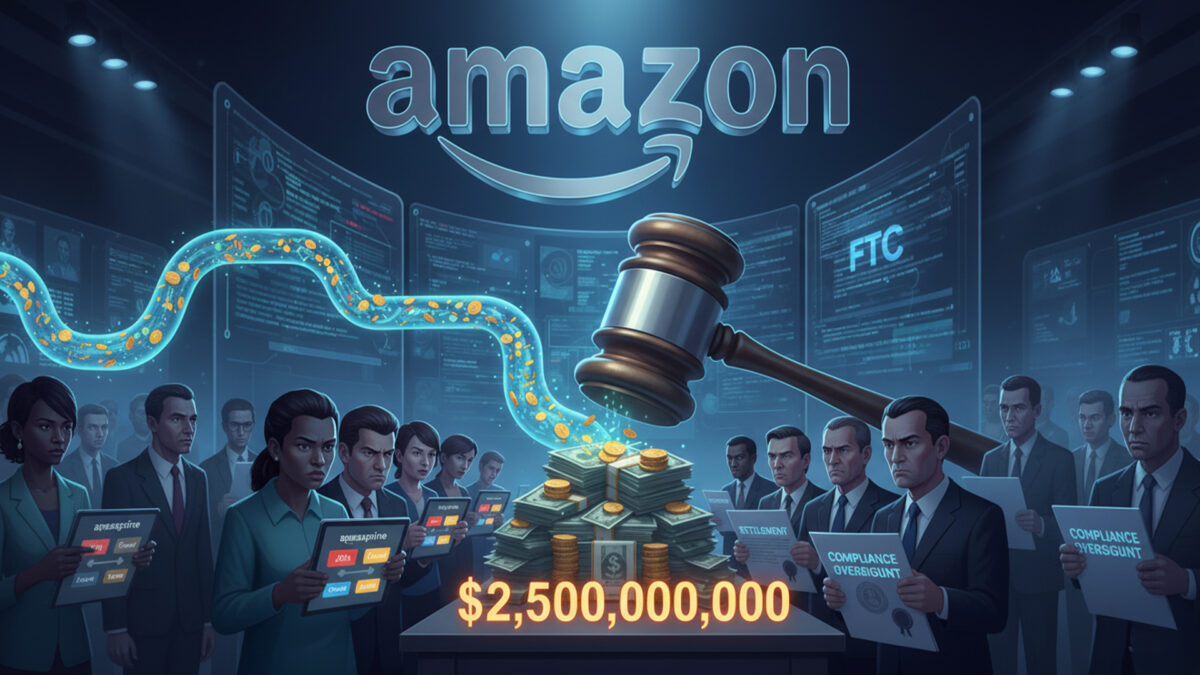Amazon has agreed to pay $2.5 billion to settle claims by the U.S. Federal Trade Commission (FTC) that it misled consumers into signing up for Amazon Prime memberships and made it unduly difficult for them to cancel. Under the settlement, Amazon will pay $1 billion in civil penalties and allocate $1.5 billion to reimburse affected consumers.
The FTC alleged in the complaint that Amazon employed “dark patterns”—user interface designs intended to mislead users—and used confusing or insufficient disclosures to enroll consumers into Prime without their full awareness. The agency also asserted that the cancellation process was overly burdensome, with internal discussions at Amazon referencing a cancellation process code-named “Iliad.”
Amazon did not admit wrongdoing as part of the settlement. But besides the monetary penalties, it must implement structural changes: the company is required to provide a “clear and conspicuous” option to decline Prime during checkout, fully disclose all material subscription terms at the point of enrollment, simplify cancellation—allowing users to cancel via the same method they enrolled—and submit to oversight by an independent third-party monitor to enforce compliance.
The settlement terms cover subscribers who joined Prime between June 23, 2019, and June 23, 2025. Consumers who enrolled via the challenged flows—such as certain checkout or signup pages—and who used fewer than three Prime benefits during a 12-month period will receive automatic refunds of up to $51. Others may file claims if, for example, they attempted unsuccessfully to cancel or enrolled via ambiguous flows and used up to 10 benefits.
Refunds must be disbursed within 90 days for automatically eligible consumers. For those needing to file claims, Amazon must issue a claims form within 30 days after automatic refunds are completed and allow up to 180 days for submission. Amazon will have 30 days to adjudicate claims.
FTC Chair Andrew N. Ferguson characterized the resolution as “historic,” saying the settlement “put billions of dollars back into Americans’ pockets” and eliminated misleading subscription practices.
The case originated from a 2023 FTC lawsuit that accused Amazon of enrolling customers without proper consent and hindering cancellation. That legal action was part of broader scrutiny by U.S. regulators of large tech firms’ consumer practices.
Some legal experts view the settlement as one of the most significant FTC enforcement outcomes in recent years, both because of its size and the systemic reforms it mandates. Others will observe closely whether Amazon’s changes withstand ongoing regulatory and judicial scrutiny, especially in light of other pending antitrust litigation against the company.
Amazon said in a statement that it “works incredibly hard to make it clear and simple for customers to both sign up or cancel their Prime membership” and welcomed the resolution as a path forward.
This settlement marks what the FTC describes as the largest civil penalty it has ever imposed under a rule violation and the second-largest consumer reimbursement fund in its history.
Also Read: At $57.6 Billion, Maruti Overtakes Ford, GM, Volkswagen in Valuation
